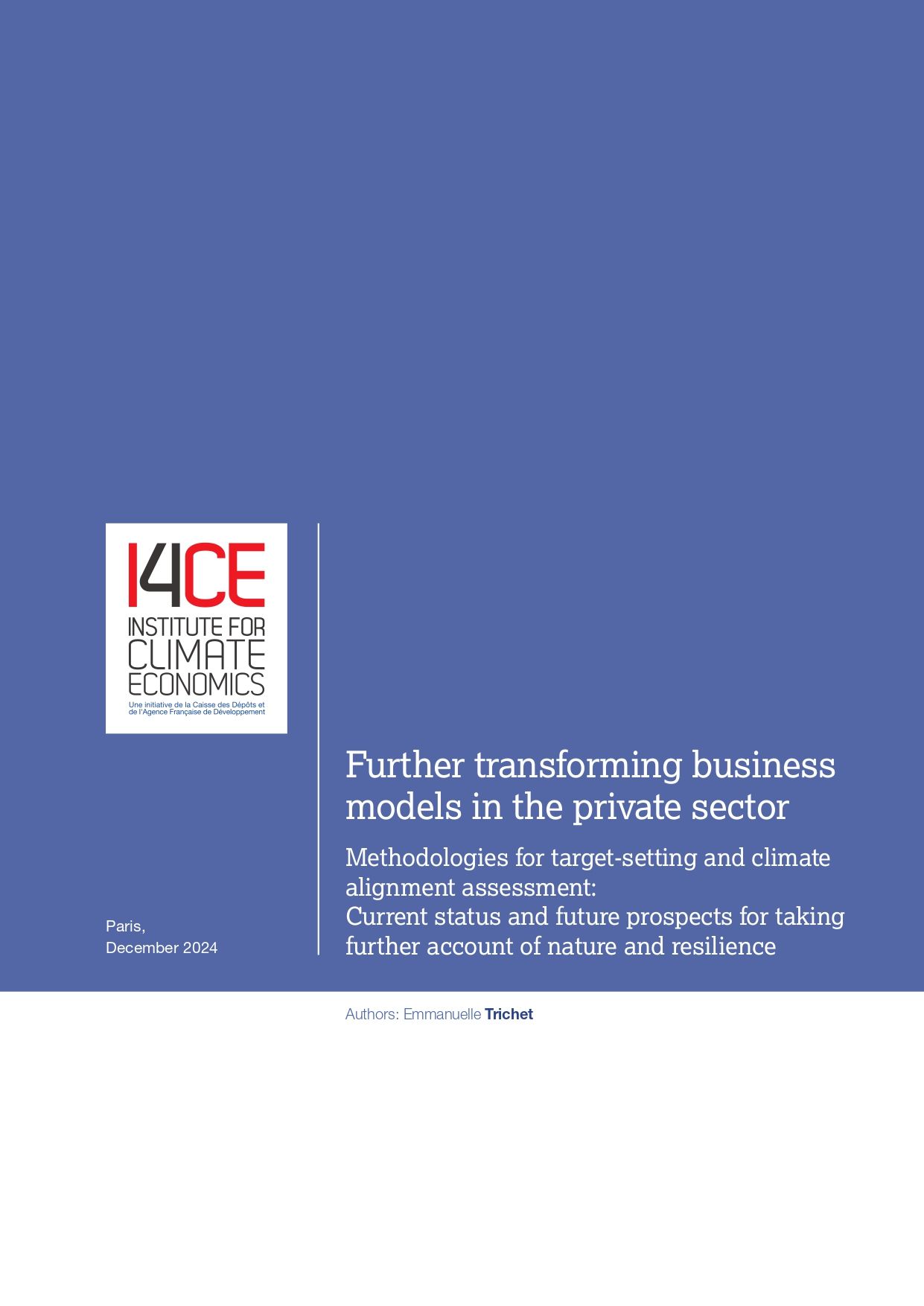Further transforming business models in the private sector
Methodologies for target-setting and climate alignment assessment:
Current status and future prospects for taking further account of nature and resilience
Economic players face growing pressures to transform their business models in response to multiple challenges (sustainability issues, technology leadership, control over natural resources, etc.), while strengthening their competitiveness and resilience.
2024 is the first year to exceed 1,5°C above pre-industrial levels; the losses associated with global natural disasters -mainly due to weather catastrophe- are on an upward trend (Munich Re, 2024).
The Paris Agreement sets the objective of “making finance flows consistent with a pathway towards low GHG emissions and climate-resilient development”, which is generally referred to as the “alignment” of investments and financing (UNFCCC 2015, OECD 2024). In Europe, the additional annual investment required is estimated at €620 billion per year up to 2030 to meet the objectives of the Green deal and Fit for 55 – more than €400 billion per year for energy, buildings and transport systems (PSF 2024, I4CE 2024 ). The largest share should come from private finance. This implies redirecting the assets of financial players and creating a capital markets union; in accounting terms, 2% of around €33 trillion of European savings should be redirected each year.
Economic players would take advantage to further consider the latest science insights regarding climate issues and natural resource constraints to assess the risks and the opportunities, in order to elaborate policies that strengthen innovation, the competitiveness and resilience of business models. The integration and appropriation of scientific expertise is a strategic challenge through organisations.
Private and public players have mobilised to develop various methodologies that offer complementary perspectives of climate alignment. Methodologies contribute to guide capital allocation, financing and investment decisions within the economy and incentivise company and sectoral transition. They provide general guidance on how to assess climate performance and/or are more practical since they are based on qualitative or quantitative data. They derive pathways distributing the reduction of the carbon budget over time, from climate change mitigation scenarios consistent with the Paris Agreement goals, to define targets, measure progress and design strategic plans accordingly.
This paper provides decision-makers with an overview of the current state of thinking on alignment methodologies, avenues for improvement and targeted actions towards achieving a sustainable. It recommends that economic players and methodology providers explore the wider opportunities that arise from having greater consistency between their approaches to climate and nature, in order to define greater consistent and resilient strategies:
1. Alignment methodologies have broadened their approach from assessing the alignment of greenhouse gas (GHG) emissions and activities to that of transition plans, with an emphasis on financing those emissions reduction rather than financed emissions reductions.
2. This evolution towards the assessment of transition plans relying on a multidimensional approach represents an opportunity to take greater account of natural resource constraints and adaptation upstream, with a view to making alignment strategies more resilient.
3. Sectoral transformations could be further incentivised in the net-zero transition (and related methodologies) within the planetary boundaries, in particular via new circular business models for greater strategic autonomy, resilience and competitiveness.
4. Progress in better capturing decarbonisation efforts and real-world impacts should also be monitored.
5. Similarly, a range of complex methodological choices and assumptions of methodologies that influences the alignment results for a financial asset or economic player could further progress.
6. Methodology designers should provide greater transparency, comparability, interoperability and relative convergence on best practice.
7. Beyond, economic players and methodology providers could consider further the latest scientific developments to guide strategies and increase synergies for greater co-benefits and resilience, key issues for future competitiveness.

